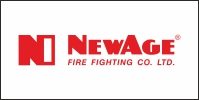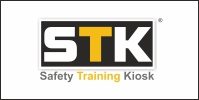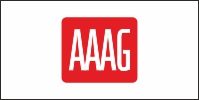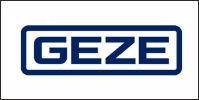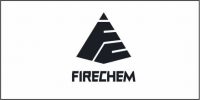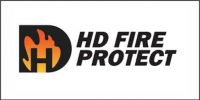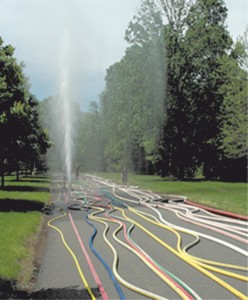 Earlier this year we spotted an article describing a fire department along the east coast that was shut down due to a lack of historical records showing annual NFPA (National Fire Protection Agency) testing of the department's fire equipment.
Earlier this year we spotted an article describing a fire department along the east coast that was shut down due to a lack of historical records showing annual NFPA (National Fire Protection Agency) testing of the department's fire equipment.
We all know that the NFPA sets standards for the annual testing of your fire equipment such as fire hoses and ground ladders and while these standards may not be required by law, we've seen more municipalities and ISO (Insurance Service Organization) crack down on departments that are not being compliant. After much chaos and coordination, the department was finally allowed to continue operations after completing their first ever annual equipment testing. However, the legal, financial and political issues could have been avoided with a little preparation and yearly budgeting.
Annual equipment testing is important and is not something that should be taken lightly. Some departments choose to test their equipment once every other year or even longer but that can put everyone at risk. While we understand that budgets can be tight in some communities, failures can and do happen at any time. By waiting an additional year to test equipment fire departments are opening themselves up to the possibility of more failures in between testing years. In addition, ISO has very strict requirements that usually ask for the previous three years of testing records and not showing an annual test will only lower the ISO rating.
Insurance rates can be highly dependent on the status of a fire department's annual equipment testing. While ISO requires annual hose and other related equipment testing records, other insurance agencies are just as concerned with on the job injuries related to faulty equipment. Since injuries are more likely when equipment isn't tested, ISO rating and workers compensation rates and premiums can be negatively affected. In most cases the town is responsible for insuring the emergency responders and they don't want to chance losing the coverage they have due to the fact that their fire department is not taking the appropriate proactive measures.
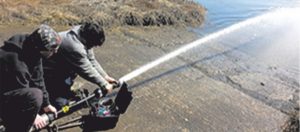 A hose failure can be a simple slow leak at the coupling due to a bad gasket or it can be a bulge that ends up bursting. Waiting to find out at a working structure fire if you have more time with the little leak or if it is going to burst is not best practice. Fire grounds are constantly busy with a ton of moving entities so hose and other equipment failures can often mean disastrous results for emergency responders and onlookers. Being proactive and getting your hose and other equipment tested is actually a much better approach. In addition, if the fire department is part of a Tanker Task Force or a Strike Team means that the county has deemed the department an essential component in completing the given task. Whatever the line-up of apparatus, your department don't want to be the one delaying operations due to faulty equipment.
A hose failure can be a simple slow leak at the coupling due to a bad gasket or it can be a bulge that ends up bursting. Waiting to find out at a working structure fire if you have more time with the little leak or if it is going to burst is not best practice. Fire grounds are constantly busy with a ton of moving entities so hose and other equipment failures can often mean disastrous results for emergency responders and onlookers. Being proactive and getting your hose and other equipment tested is actually a much better approach. In addition, if the fire department is part of a Tanker Task Force or a Strike Team means that the county has deemed the department an essential component in completing the given task. Whatever the line-up of apparatus, your department don't want to be the one delaying operations due to faulty equipment.
Unless you have been in the shoes, or in this case boots, of a firefighter inside a structure fire with a limp hose radioing for water you can't possibly appreciate the peace of mind knowing that all of your equipment is in working order. To make matters worse, a back up crew with an attack line is not always immediately available. If the crew outside is switching out a failed length of hose or a malfunctioning appliance, these seconds feel like hours. Time is valuable especially when every second counts knowing that fire doubles in size every 30 seconds. As soon as the water flows through that line, the firefighter can then begin to push back and hopefully get a good stop on the fire. Finding, confining and suppressing is the job of firefighters and having water at our fingertips is KEY to being successful!
Failed equipment isn't just bad because of the need to be replaced, but sometimes a failure on a fire ground can cause real harm due to the explosions of bad hose and appliances. There are countless documented and undocumented incidents involving equipment failures resulting in death or serious injuries that could have been avoided with preventative maintenance of the fire equipment. In a recent instance, a Kansas firefighter was observing a leaking coupling when the pressurized hose ruptured and the brass coupling hit him in the face knocking him unconscious and fracturing his skull. A failing hose in a designating testing area results in less injuries as the job area can be defined and proper safety protocols followed.
While the testing of equipment is important, just as important are accurate records of each piece of equipment tested. Historically, some departments have had issue or even shut down because of inadequate records, even if they had done the testing. Records don't need to be kept electronically, but they should be well maintained and duplicates kept in a safe location. An officer should also be assigned the responsibility of keeping the records so when the time comes to take a look at the historical tests they can easily be found. Also keep in mind if choosing a third party equipment tester how the company keeps its historical records. The way a hose tester inventories, tests and delineates all of the department's hose is a relief in itself but the documentation is just as important to consider.
The NFPA is always ready to assist with any questions for their standards and many reputable third party equipment testers exist ready to help at any time. Besides being told to do so, there are many good reasons why annual fire equipment should be a priority for you and your fire department. Whether your department is all-volunteer, paid or a combination, budgeting for maintenance should be on every department's agenda.













